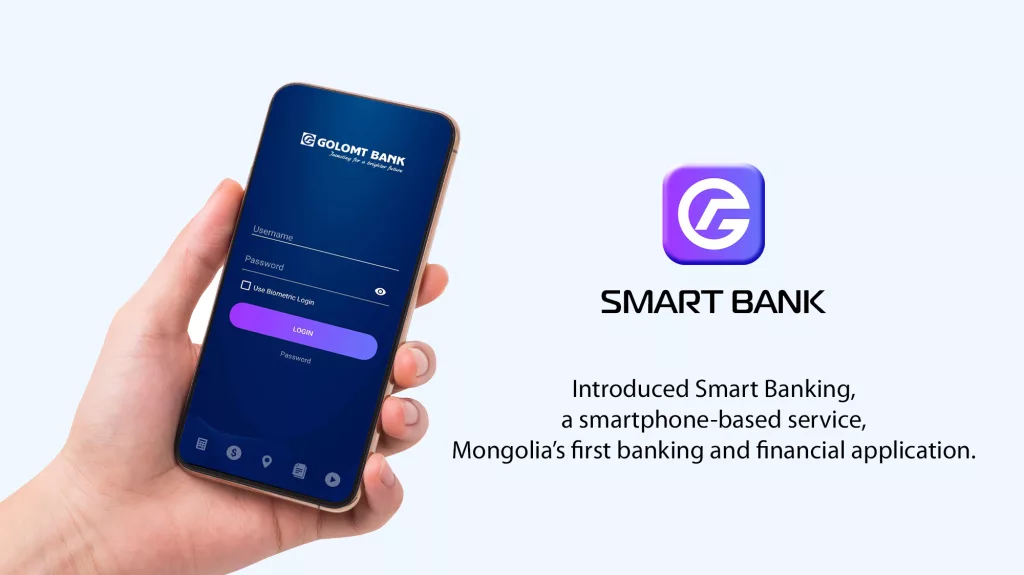Investing in a Future that has Never Seemed Brighter — a True Pioneer Bank in Mongolia
Staying true to its values and aims has taken Golomt Bank to enviable heights.

Golomt Bank
Golomt Bank was established on 1995 as one of the first commercial banks in Mongolia, with just four employees. Today, it boasts 2,500 staff and 1,000,000 customers, and comprises 20 percent of the country’s banking sector.
That roaring success is largely due to faithful adherence to its motto of “Investing for a brighter future”, and its stated aim to improve the wellbeing of every citizen. Golomt delivers world-class services to businesses, partners, investors, and local and international customers.
Pioneering Financial Inclusion in Mongolia
Golomt Bank has been an integral part of Mongolia’s economic development, supporting and financing ethical businesses, contributing to national development and economic diversification.
The financial institution has been at the forefront of technology-based services, beginning its digital transition in parallel with global development. With AI-based algorithms, it has sparked a digital explosion in the sector. Its customer service has seen it ranked alongside the top banks in South East Asia and Europe.
Despite the country’s size and sparse population, Golomt has brought banking to the masses. The banking sector is a competitive environment, and this is a bank willing to go the extra step.
Global attention is focused on sustainable development goals, and protecting the environment is something the bank takes seriously. Golomt Bank became a member of the UNEP FI Banking Committee in 2017 — one of the 30 signatory members who created Principles for Responsible Banking. Mongolia was one of the first countries to officially address sustainable development — way back in 2013.
That is a lead it intends to nurture. “We want to increase our green finance loans and develop stronger ESG risk-management practices,” says deputy CEO Odonbaatar Amarzaya. “Even though the bank may miss some short-term commercial gains, we will refrain from supporting negative businesses and projects.”
Innovative Banking Solutions for a Modern Economy
Digitalisation is at the forefront of Golomt’s Open Bank strategy “The bank avoids projects that have a negative impact on the environment or society. Even though we may miss some short-term commercial profit opportunities, we stick to that policy.”
A study identified the biggest greenhouse gas emission to the transport sector, an obvious starting point. The bank also invested in a boiler replacement scheme cutting emissions by 20 percent or more. Customers investing in facilities and technologies to decarbonise their operations, they can expect to attract more investment.
“We would like to support customers, SMEs and female entrepreneurs,” says Amarzaya. “This increases our social responsibility and makes a significant contribution to the economic cycle.”
That motto — “Investing for a brighter future” — means supporting projects that are eco-friendly, community-friendly, and drive positive change. Golomt Bank is the only signatory from Mongolia to the United Nations Environment Programme Finance Initiative. “As we drive social and sustainability programmes,” says Amarzaya, “our financial future looks bright.”
The Open Bank business model is based on innovation, co-operation, and becoming a partner for customers as they overcome challenges. “Open Bank means that we create new values and contribute to improving citizens’ lives and the country’s development. Sharing our experience, knowledge, and infrastructure will be the main direction of our future.

This leads to the next area of focus: the country’s youth. “Generation Z, the future leaders of Mongolia’s economy, have sometimes found it difficult to use traditional banking services,” says Amarzaya. “They want to rely on technology instead of going to a branch or an ATM. Our Open Banking strategy is exactly what they want.”
Another goal is to reduce the bank’s own environmental footprint. Amarzaya notes some key inflection points and milestones. It has proven, since 1995, that a private bank can be successful. “We have been working within the framework of our mission to be the leading bank in Mongolia, co-operate with foreign organisations at the international level, and ensure that Mongolians have access to the best banking products and services.
“We aimed to create these in the first decade of the bank, and the term ‘Pioneer Bank’ became part of our basic philosophy. We were founded when the concept of the private sector was just emerging in Mongolia.
“We were the first to introduce an international payment card system in 1997, and it became the basis of the current banking system. The introduction of Internet banking became the basic payment solution, and Golomt Bank has introduced products and services to accelerate the sector, including technologies and initiatives such as SWIFT, Western Union, and 24-hour banking services.”
The next milestone was one that put Mongolia ahead of the rest of the world. Golomt introduced EMV chip cards in 2008, something that only came to the US in 2011. In 2012, it recognised that mobile phones would play a vital role in payments and services, and the Smart Bank app was introduced.
“A year later, other major banks of Mongolia followed our lead. In this way, Golomt Bank lived up to its title of ‘Pioneer Bank’ — as well as a leading one. It now includes Smart Bank, Digital Bank, Finacle, and SocialPay 3.0, a digital wallet application that is the first in the banking industry and the leading application in the fintech industry.
The third turning point was Golomt Bank’s IPO in 2022. With the Open Bank strategy, it aims to bring new development and business growth.
Most recently, Golomt Bank JSC successfully issued its standalone three-year inaugural $300m bond in the international capital markets in 2024. This marked the return of Mongolian commercial banks’ presence in the international debt capital markets, which had been halted for over a decade. “We think this will set a benchmark to bring more issuers to the global capital market.”
Driving Digital Transformation and Enhanced Governance
Over the past 30 years, Golomt has accumulated knowledge and experience to share openly, providing real support to others. “Mongolia cannot be created by any sector alone, and tight co-operation and efforts between businesses and sectors will make this dream come true,” says the deputy CEO. “We will accelerate the digitalisation by sharing the solutions we have created. All our customers should win, and save time and money overall.
“The vision is not just for banking and financial literacy solutions. Our aim is to provide a digital ecosystem that encompasses sectors such as health, education, and agriculture. Our mission is to drive a collaborative digital economy across the spectrum of Mongolian society. An open bank is fundamentally about driving a culture of digital transformation – with agility, commitment, and imagination.
“It’s not just a slogan, it’s a strategy embedded in the trust of our employees, managers, directors, and investors.”
Golomt Bank’s transition to a publicly listed company has spurred significant enhancements in its governance and transparency. These improvements aim to strengthen investor confidence and public trust. A cornerstone of the enhanced governance structure is the composition of the board of directors. Golomt has not only increased the total number of board members, it has also established one of the most independent decision-making bodies within the Mongolian banking sector. Four of nine board members are independent from controlling shareholders, fostering objective decision-making.
Golomt Bank has adopted an employee-centred strategy, strengthened ethical culture, and created a system providing all employees with opportunities to learn, develop, and challenge themselves.
That’s an investment that truly brings a brighter future.
You may have an interest in also reading…
Bangladesh: Steadily Moving Up without Beating the Drum
Skipping the usual ado and almost silently, Bangladesh is moving up the ladder and surpassing its local peers in a
Africa’s Changing Mediascape: Spreading the Word from China
A monumental shift is taking place in the world’s mediascape. As traditional news outlets such as CNN and the BBC
China Syndrome: A Wilting Economy, Financial ‘Long-Covid’, a Collapsing Property Sector — and the Spectre of Deflation Hovering Nearby
The global economy is supported by four pillars; two are wobbly, reports Wim Romeijn, and one is being rebuilt. The


















































































